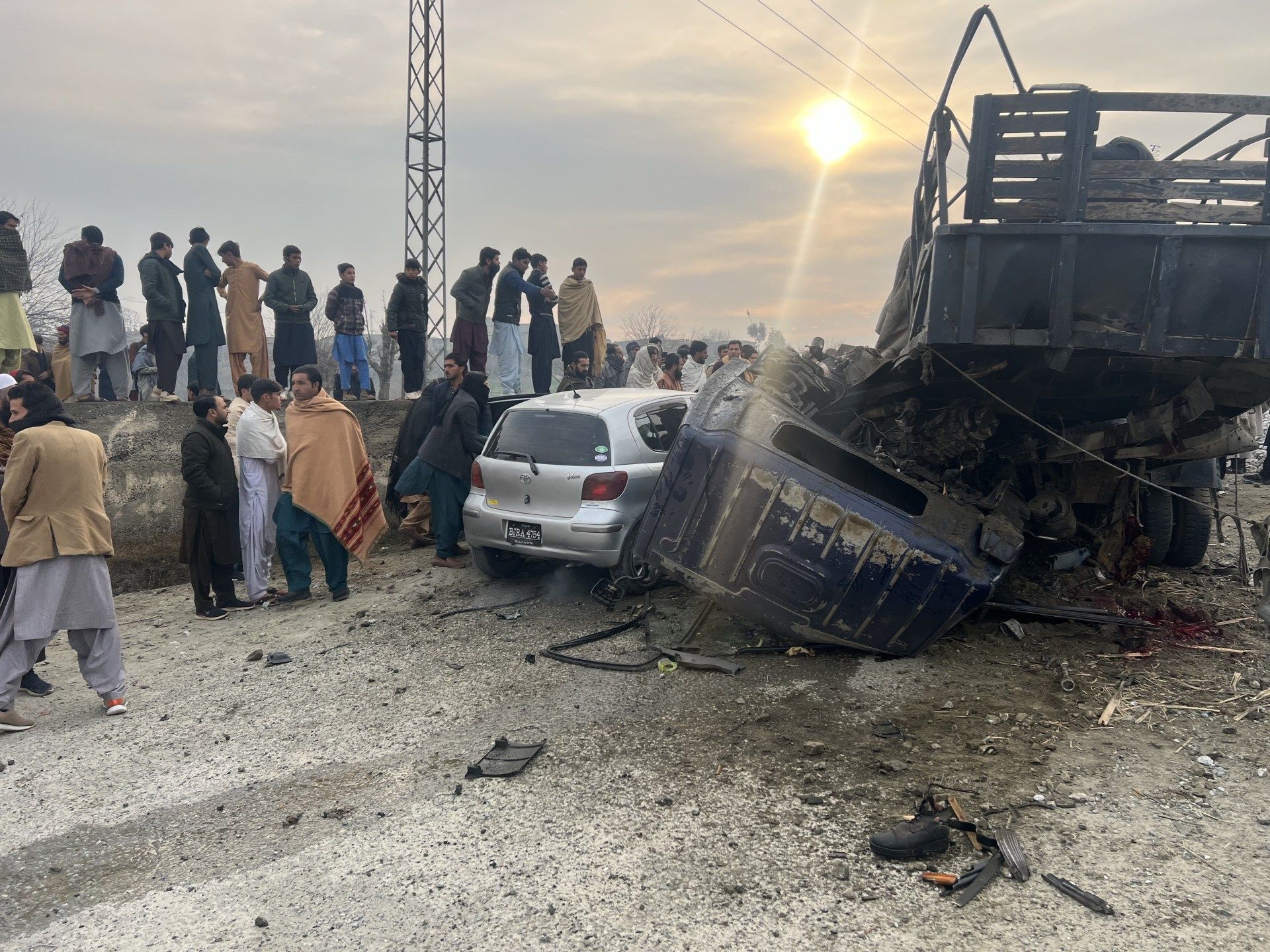Islamabad, Pakistan: Pakistan's airstrikes inside Afghanistan on Monday amid rising tensions between the neighbors have injected new uncertainty into relations, analysts say.
The early Monday attacks from Pakistan, according to a detailed statement from the Pakistani foreign ministry, targeted hideouts of armed groups, including the outlawed Tehreek-e-Taliban Pakistan (Pakistan Taliban, or TTP). Afghan authorities said eight people in total – five women and three children – were killed.
The government's official statement said that “terrorists” pose a major threat to the country and alleged that they “have consistently used Afghan territory to launch terrorist attacks inside Pakistani territory.”
“Terrorist groups like the TTP are a collective threat to regional peace and security. We are fully aware of the challenge that the Afghan authorities face in combating the threat posed by the TTP. Therefore, Pakistan will continue to work towards finding joint solutions in the fight against terrorism and to prevent any terrorist organization from sabotaging bilateral relations with Afghanistan,” the statement said.
The airstrikes came two days after a group of suicide bombers attacked a Pakistani military checkpoint in their district of North Waziristan, a border area next to Afghanistan, killing at least seven Pakistani soldiers.
The Afghan Taliban, who have ruled the country since taking power in August 2021, reacted quickly to the Pakistani attacks, calling them “reckless.” Hours after the airstrikes, the Afghan army fired mortar shells at Pakistani military positions near the border districts, leaving four civilians and three soldiers injured.
Zabiullah Mujahid, spokesman for the Taliban government, denied that foreign armed groups are allowed to operate from Afghan soil. But he admitted that parts of the Pakistan-Afghanistan border were difficult to control.
“In this sense, we have made our maximum effort and we will continue to do so; but one thing we must accept is that Afghanistan shares a very long border area with Pakistan, and there are places with rugged terrain including mountains and forests, and places that could be out of our control,” Mujahid said in response.
Sami Yousafzai, a journalist and long-time observer of Pakistan-Afghanistan relations, described the dispute as a fight between two cousins.
“These two neighbors act like they are cousins. They can't separate, but they also can't find a way to fix their relationship. And all this fighting is affecting relations between them among the public,” he told Al Jazeera.
For years, Pakistan was seen as a sponsor of the Afghan Taliban, who first came to power in 1996. It was believed to wield considerable influence over the Taliban leadership, whom it protected, financed and diplomatically protected.
However, in the midst of the United States' so-called “war on terrorism,” the Pakistani Taliban emerged and began waging war against the State of Pakistan, although the group was ideologically aligned with the Afghan Taliban.
The Pakistani military carried out multiple operations to eliminate the Taliban from Pakistan and managed to push some of its leaders into Afghanistan. After the Afghan Taliban returned to Kabul in late 2021, Pakistan hoped to use its historical influence over the new Afghan rulers to contain the Pakistani Taliban.
Instead, attacks increased and 2023 was among the bloodiest years in Pakistan's recent history, with more than 650 attacks across the country, killing nearly 1,000 people, mostly members of law enforcement and the military. . Most of the attacks on security personnel were claimed by the Pakistani Taliban, along with other relatively lesser-known armed groups.
Over the years, Pakistan has blamed the Pakistani Taliban for several attacks within its territory, which killed thousands of people, including the deadly attack on the Army Public School in Peshawar in 2014, which killed more. of 130 students.
More than 90 percent of the 2023 attacks were carried out in the northwestern province of Khyber Pakhtunkhwa and the southwestern province of Balochistan, both bordering Afghanistan.
Syed Akhtar Ali Shah, former police chief in Khyber Pakhtunkhwa province, said such regular attacks on security personnel affect the motivation of the forces and that Pakistan had no choice but to retaliate.
Shah also noted that Pakistan had the additional experience of a similar level of cross-border action earlier in the year against Iran, which perhaps emboldened the military.
In January this year, Iranian forces launched a cross-border attack inside Pakistan, targeting hideouts of an armed group that it claimed is against the interests of the state of Iran.
Within 24 hours, the Pakistani government responded with its own attacks inside the Iranian province of Sestan-Baluchestan, targeting what it claimed were armed groups seeking protection in Iran.
After tit-for-tat action, Pakistan and Iran managed to calm those tensions, and the Iranian Foreign Minister visited Pakistan the same month.
Shah, the former police chief, felt that Pakistan perhaps learned a lesson from that incident and decided to show “muscle.” But he also added a word of caution.
“When you take an aggressive stance like that, it helps to have a dialogue from a position of strength. But it could also backfire and create a dilemma for the country because the Afghan government may retaliate,” he added.
Yousafzai said one way the Afghan government could demonstrate its ability to fight back was by allowing the Pakistani Taliban freer reign in border areas.
“There is a lot of resentment within Afghanistan about what Pakistan did and they are not happy with the situation, so this could have consequences,” he said.
Shah said Pakistan has some influence over Afghanistan: Pakistan is the largest trading partner of landlocked Afghanistan. Pakistan has also long hosted millions of Afghan refugees. Many Afghans also travel to Pakistan to access health facilities.
Last year, following increased violence, Pakistan launched a campaign to expel Afghan refugees living in the country back to Afghanistan, citing security concerns.
The measure was denounced, both nationally and globally, but as of December 2023, more than half a million Afghans had been deported.
But if Pakistan uses any of those levers of influence, it is likely to become even more unpopular in Afghanistan.
“There are strong anti-Pakistan sentiments in Afghanistan, and vice versa, and all this will not help either side in the long run,” Yousafzai said.












